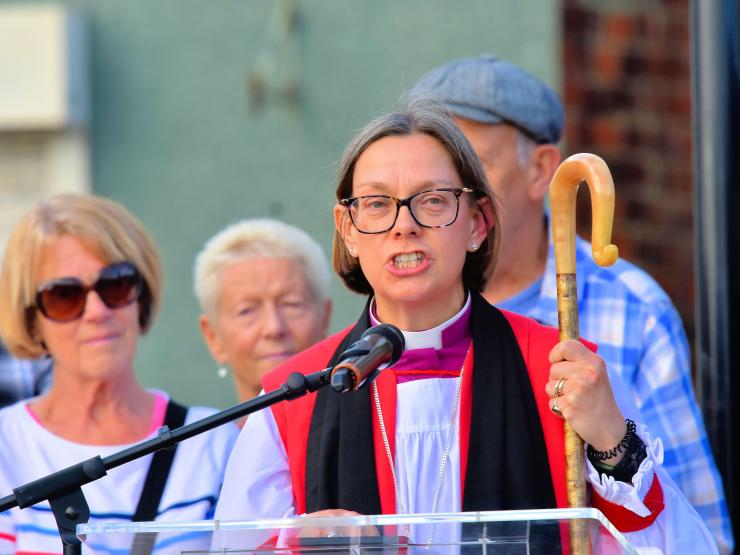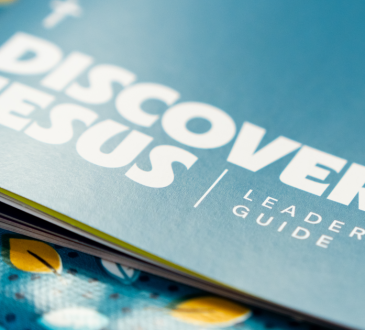Breaking the Silence: Bishop of Newcastle Speaks Out on ‘Culture of Fear’ in the Church of England

The Bishop of Newcastle, Rt Rev Dr. Ann Hartley, has ignited a storm of debate within the Church of England by addressing what she describes as a “culture of fear” surrounding abuse and its mishandling. As the highest-ranking cleric to publicly call for the resignation of the Archbishop of Canterbury, Justin Welby, following the damning Makin Review, Bishop Ann has positioned herself as a lone but resolute voice for accountability and reform.

“A Dysfunctional Silence”: The Bishop’s Revelation
Speaking candidly to IRN, Bishop Ann described a troubling atmosphere among senior clergy that discourages open discussion on sensitive issues such as abuse and sexuality. She criticized what she termed a “heads down” approach, a tendency of church leaders to evade controversial matters to protect their positions or reputations.
“I thought I would be joined by colleagues who I knew privately were discerning that it was probably the right thing for the Archbishop to resign,” she said. “It’s a great disappointment to me that when I called for that publicly, I was indeed a lone voice. So I have no real explanation for that, other than there is a culture, I think, of silence and fear amongst the bishops, which is really unhealthy.”
Fear and Careerism in the Church
Bishop Ann further alleged that the Church’s hierarchical system might inhibit truth-telling, with some clergy prioritizing career progression over justice. “Some are silent, perhaps because they see themselves as succeeding to be the new Archbishop of Canterbury. Others are fearful of being reprimanded and rebuked,” she explained.
Despite these criticisms, she was quick to acknowledge the challenges faced by her colleagues: “I think my colleagues do a really fantastic job at the local level. Let’s face it, being a bishop or being a leader in public life is challenging and not easy at times.”
The Makin Review Fallout
The Makin Review, which scrutinized the abuse perpetrated by the late John Smyth and the Church’s handling of it, has already sparked widespread calls for systemic change. Bishop Ann is adamant that accountability must extend to all implicated. “Anybody who’s named in the [Makin] report, who is shown to have failed in the highest standards expected in response to abuse and reporting of abuse… I think they ought to step down.”
A Strained Relationship with Senior Leaders
In an example of the challenges she has faced, Bishop Ann publicized a letter from the Archbishops of Canterbury and York, urging her to reinstate the former Archbishop of York, John Sentamu, to ministry. Sentamu had been asked to step back in 2023 after it emerged he had failed to report abuse. Bishop Ann described the letter as “coercive” and noted its use of hierarchical language. “The letter addresses me by my first name,” she said. “I don’t have a problem with that, but it’s signed by both Archbishops using their full titles. I think it was deliberately written so as to coerce me into a particular view.”
A spokesperson for the Archbishop of York denied any coercive intent, expressing sadness that Bishop Ann had felt distressed by the correspondence.
A Voice for Reform
Bishop Ann’s willingness to speak publicly has earned her both support and scrutiny. Her name has frequently surfaced as a potential successor to Justin Welby, should the calls for his resignation gain traction. However, she remains steadfast in her demand for broader accountability within the Church.
“This is not about one person or one role,” she said. “It’s about ensuring the Church operates with integrity and transparency, so we can truly be a safe place for all.”
What’s Next for the Church of England?
As the Church grapples with these revelations, Bishop Ann’s boldness has thrown open the doors to questions about leadership, culture, and the ability to protect the vulnerable. Her critique underscores a pressing need for systemic reform, not only to restore public trust but also to safeguard the moral authority the Church aspires to uphold.
Her words serve as both a challenge and a call to action: Will the Church confront its culture of silence, or will the fears she describes continue to cloud its path to healing and justice?




